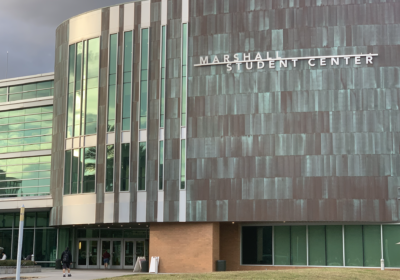Student group wants USF food bank

Living life as a college student is not without its stresses. Students commonly worry about passing finals, paying for tuition and studying for classes. But there are some students who must deal with an additional burden — the stress of wondering how they will afford their next meal.
George Cappos, the president of student group Feeding America at USF, said for every student who comes to a university department seeking help with affording food, there are many more who remain unnoticed.
“We don’t have any true statistic (of students who deal with hunger), but what we do have is people going into these counseling centers and wellness centers and asking for food,” Cappos said. “There are a lot of people here who rely on FAFSA for aid and a lot of students who are coming from lower economic statuses … so there are plenty of reasons to assume that there are a sizeable amount of students here who are struggling with (affording food).”
Due to a population of USF students who deal with hunger on a regular basis, Feeding America at USF, a local chapter of hunger-relief charities Feeding America Tampa Bay and Feeding America, is looking to start an on-campus food bank that would exclusively assist USF students dealing with food insecurity.
Cappos said the group’s inspiration for creating an on-campus food bank began when a department of USF’s Wellness Center reached out to them about an influx of hungry students who were looking for help after running out of money for food.
No student food bank currently exists on USF’s Tampa campus, which means fewer options for students tackling food expenses.
“What happens usually in these kinds of situations is that before they reach out to us, they get tossed around from department to department seeing if there’s anybody who can do anything, (but) there isn’t,” Cappos said.
One USF student, who wished to be anonymously identified as Katy, said she is all too familiar with this experience and the university needs a place for students who cannot reliably afford food each week.
“Many of the student groups here are all about philanthropy … and granted they’re all very important organizations,” she said. “But there’s nothing that benefits students (struggling with hunger).”
Katy is a senior majoring in biomedical sciences and political science. Katy said while she was able to make ends meet for the most part with grants, scholarships and two part-time jobs working for a friend’s company and bartending in Ybor, this money was quickly exhausted.
Katy said paying for rent, gas, textbooks and other costs of living required from the typical college student has sapped her income and financial aid. Bouts of hunger last spring made her finally take out subsidized and unsubsidized loans to help pay for food.
“Last spring before I started taking out loans, I was on campus and it was 11 or 11:30 (a.m.), and I had a 3:30 class, and I was really hungry and couldn’t even think straight. I just broke down,” Katy said. “It was that spring when I actually realized (it was time to) just bite the bullet and take out loans because this really sucks.”
Though Katy said the loans have allowed her to reliably afford food and quit working in order to focus on her studies, her financial freedom has not come cheaply. Her loans currently total somewhere in the tens of thousands — something an on-campus food bank may have helped her avoid.
While starting a food bank from scratch might be a tall order for a student group that started last spring with only 10 to 15 active members, Cappos said something needs to be done in order to curb food insecurity at USF. He also said the food bank would allow Feeding America at USF to make its mark as a student group.
While speaking to USF Wellness about the possibility of a food bank, Cappos said he learned of a number of other universities that host on-campus food banks, including Florida Gulf Coast University (FGCU). FGCU began its food bank in 2012 and is home to around 30,000 fewer students than USF.
“When I found out about (FGCU having a food bank), it inspired us to do this even more,” Cappos said. “There’s always a portion of people who are less privileged in any population, so … no matter how small the percentage is, there’s going to be a big number of people who are struggling.”
To develop the foundation of the food bank, Feeding America at USF first began by collecting food through its annual food drive. While the group was able to accrue enough food to start the bank, they plan on purchasing more over time with the help of discounts from Feeding America Tampa Bay, group fundraisers and hopefully annual USF funding.
When the bank is up and running, Cappos said it will be open once a week for four hours to USF students with a valid student ID and, most likely, proof of FAFSA. Students who are finding themselves short on food during the week can stop by to help supplement their budgets with much-needed free food.
Feeding America at USF is currently in the process of securing a physical location for the food bank, and Cappos said he expects it to open in August. The group will make a few test runs over the summer to make sure it can reach as many hungry USF students as it can this fall.
“Every time I go outside the Library, someone’s selling cookies or muffins for some organization,” Katy said. “But nobody’s really thinking about students who can’t even go to Starbucks and get a sandwich.”






